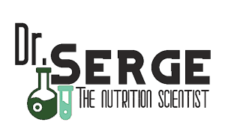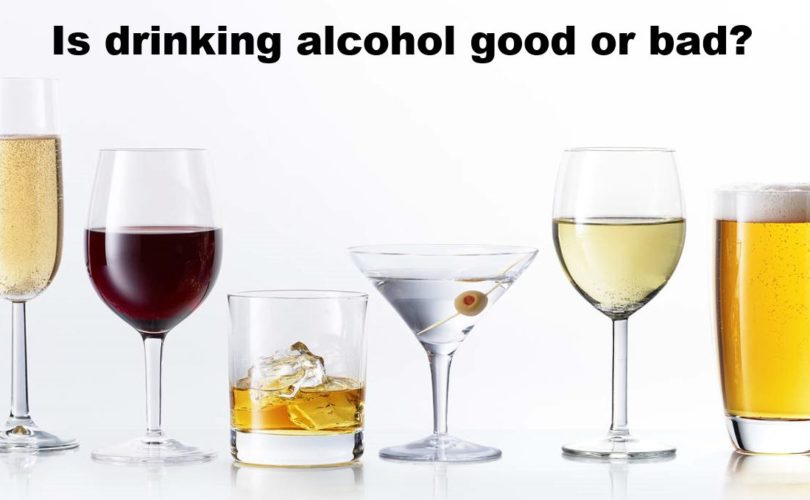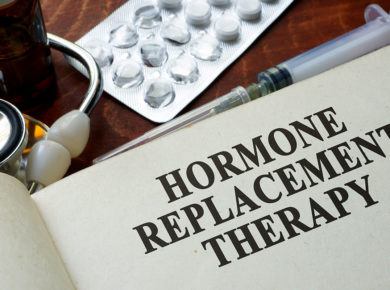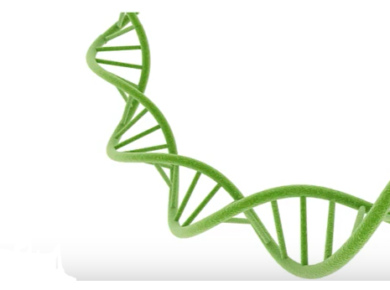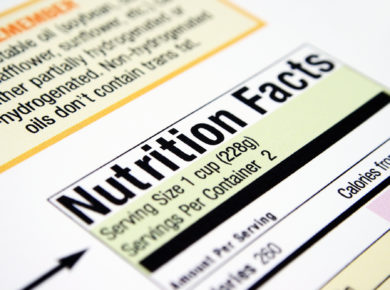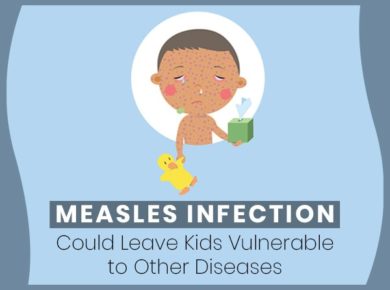A question that I get almost every day: is alcohol ok to consume?
In large amounts, alcohol and its metabolites can overwhelm the gastrointestinal tract (GI) and liver and lead to damage both within the GI and in other organs.
Specifically, alcohol and its metabolites promote intestinal inflammation through multiple pathways. That inflammatory response, in turn, exacerbates alcohol-induced organ damage, creating a vicious cycle and leading to additional deleterious effects of alcohol both locally and systemically.
Both the small and large intestine can be affected by alcohol and its metabolites as the result of its oxidative and nonoxidative metabolism.
Metabolism of alcohol in the GI tract can then lead to disruption of tissue homeostasis toward a chronic state of intestinal inflammation through several pathways such as changes in intestinal microbiota composition and function, increased permeability of the intestinal mucosa, and disruptions of the immune system of the intestinal mucosa.
The intestine houses more than 500 bacterial species and achieves bacterial homeostasis when the ratio between “good” bacteria and pathogenic bacteria is appropriately balanced.
“Dysbiosis” occurs when disease or environmental factors disrupt the bacterial balance. Disruption to the normal gut flora also occurs when there is an overall overgrowth of bacteria.
Studies show that alcohol promotes both dysbiosis and bacterial overgrowth, which in turn leads to an increase in the release of endotoxins, produced by gram-negative bacteria, which are bad bacteria.
Endotoxins activate proteins and immune cells that promote inflammation.
Studies in animals and humans confirm that alcohol increases intestinal bacteria. This overgrowth may be stimulated directly by alcohol, but some studies suggest that it also could be an indirect byproduct of poor digestive and intestinal function caused by alcohol consumption.
Alcohol can alter bile-acid metabolism and, in turn, bile acids can affect intestinal bacteria.
More recent studies use DNA sequencing technology to assess intestinal microbiota populations and indicate a correlation between alcohol and changes in the ratio between beneficial or “good” bacteria, such as strains of Lactobacillus and Bifidobacterium, and pathogenic bacteria, such as proteobacteria and bacilli
Connecting dysbiosis to alcohol-induced health problems, several studies find that probiotic and synbiotic interventions, which stimulate the growth of beneficial bacteria, attenuate liver injury, and liver dysfunction in cirrhotic patients.
Alcohol-induced bacterial overgrowth also may increase the risk of inflammation because intestinal bacteria can independently metabolize alcohol, producing excess acetaldehyde in the colon, which increases the production of proinflammatory alcohol metabolites.
The intestinal barrier regulates the passage of materials between the GI tract and the bloodstream, allowing for the absorption by the blood of key nutrients and preventing the absorption of noxious substances. It is made up of a layer of water, mucous gel, and epithelial and connective tissue. The epithelial layer can become leaky or “permeable,” allowing pathogens and other deleterious substances into the bloodstream.
Studies in humans demonstrate that a subset of people with alcohol use disorder (AUD) in fact have increased intestinal permeability. In addition, those people with AUD and with increased permeability are more likely to have liver disease indicating that intestinal permeability may be a mediator of organ damage.
Another study showed that not only is gut permeability increased in people with AUD, but it is also increased enough to allow large macromolecules through the intestinal barrier. Endotoxins—also known as lipopolysaccharides (LPS)—are large macromolecules and, as expected, the same study found that plasma endotoxin levels increased in parallel with increases in gut permeability.
But exactly how does alcohol induce intestinal permeability? The short answer is by disrupting the epithelial cells themselves (transepithelial permeability) and by disrupting the spaces between the epithelial cells (paracellular permeability), which consist of tight junctions, the cytoskeleton, and several associated proteins. Trans-epithelial permeability is caused by direct cellular damage. For example:
- Alcohol causes cell death, which leads to changes in the intestine that include mucosal ulcerations, erosions, and loss of epithelium mainly at the villi tips;
- Acetaldehyde forms DNA adducts that cause direct cellular damage; and
- Reactive oxygen species (ROS) released during alcohol metabolism cause direct cellular damage via oxidative stress.
Gut inflammation results from an inflammatory response mounted by the immune system against alcohol and its metabolites. Alcohol affects intestinal mucosal immunity via several mechanisms. In particular, it may first decrease the innate immune response in the mucosa, resulting in increased susceptibility to intestinal pathogens. Subsequently, as found in some studies, alcohol may trigger an immune system response and upregulation of molecules that promote the inflammatory response, including a release of inflammatory immune cells, such as leukocytes and mast cells.
As mentioned earlier, alcohol-related bacterial overgrowth and dysbiosis may lead to increased endotoxin production in the gut, which can bind to cells on the intestinal mucosa, causing local inflammation, and translocate to extraintestinal sites, causing systemic inflammation.
Studies also show that alcohol can directly modulate both innate and adaptive immunity, further contributing to gut and gut-derived inflammation. Additional studies find myriad ways that alcohol affects mucosal immunity, including the following:
- By reducing the amount of antimicrobial molecules, intestinal cells secrete, which leads to bacterial overgrowth;
- By suppressing the signaling molecule, interleukin-22, which negatively affects antimicrobial peptides and intestinal mucosal integrity; and
- By suppressing signal molecules and immune T cells and thereby suppressing the intestinal mucosal immune response and bacterial clearance.
- In terms of gut-related inflammation, studies in cell cultures, mice, and humans suggest that a disrupted circadian rhythm exacerbates alcohol-related gut leakiness.
As we can see, alcohol affects the gut function. But what to do to minimize the damage done to the gut by the consumption of alcohol.
Generally speaking, studies seem to support the idea that unsaturated fats increase gut permeability, and some kinds of saturated fats are protective.
Studies have examined the effects of several types of saturated fats given as supplements to alcohol-exposed mice.
One found that triglyceride fat found in butter prevented alcohol-induced tight-junction disruption, which in turn protects against intestinal hyperpermeability.
Another examined saturated long-chain fatty acids (SLCFAs), which are found in coconut oil, peanut oil, and dairy products. The researchers observed that the intestinal bacteria in mice chronically fed ethanol produced far fewer SLCFAs than mice, not fed ethanol, and they also had lower levels of tight-junction proteins. That changed after the researchers gave the ethanol-fed mice SLCFA supplementation. Indeed, the mice given supplementation had higher levels of tight-junction proteins than ethanol-fed mice without supplementation. SLCFA supplements also prevented dysbiosis.
It is interesting to me that the French, who drinks lots of wine, also eats lots of cheese with it. 😊
It is well established that the brain helps control the gut, and recent research suggests the opposite also is true: the gut can influence brain function.
In fact, some evidence suggests that alcohol-induced intestinal permeability and LPS can influence psychological and cognitive function. For example, among a group of alcohol-dependent, noncirrhotic patients hospitalized for detoxification, the subset that showed signs of intestinal permeability and LPS also had higher scores on measures of depression, anxiety, and alcohol cravings and scored worse on measures of selective attention.
These findings suggest that some of the biological and behavioral changes seen in people with AUD may extend from the systemic inflammatory response triggered by changes in the gut.
Also, elevated inflammatory molecules caused by the inflammatory response may be able to enter the brain and disrupt the blood-brain barrier, starting a vicious cycle that perpetuates alcohol’s effects on the CNS.
Through multiple pathways, alcohol induces gut inflammation, which in turn promotes broad-spectrum pathologies both inside and outside the GI tract.
In fact, many alcohol-related disorders, including cancers, liver disease, and neurological pathologies, may be exacerbated or directly affected by this alcohol-induced gut inflammation.
The inflammation itself results from oxidative and nonoxidative pathways of alcohol metabolism that lead to a leaky gut, bacterial overgrowth, dysbiosis, and alterations in the mucosal immune system.
In summary, the answer to my opening question is NO!
